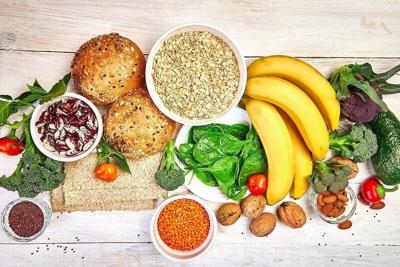Key Takeaways
A new two-question tool screens for barriers to eating healthy food, not just food access
In surveys of 20,000+ adults, 81% said healthy foods were too expensive
Nutrition insecurity was linked to higher risk of diabetes, heart disease and other chronic conditions
FRIDAY, Nov. 7, 2025 (HealthDay News) — A new screening tool may help doctors and communities better understand why so many Americans struggle to eat a healthy diet, even when they have enough food.
Researchers at Tufts University’s Food is Medicine Institute in Boston have created and tested a survey called the Nutrition Security Screener (NSS).
Unlike standard food security tools that focus only on whether people have enough to eat, the NSS looks at whether people can regularly access nutritious foods that support good health and prevent disease.
“Although the United States food supply provides plenty of calories, most Americans do not eat enough nutritious foods," study senior author Dr. Dariush Mozaffarian, the institute’s director, said in a news release.
“Diet-related diseases are a leading cause of suffering, death and preventable health care and costs — we need to understand the specific challenges different people and communities face to achieving a healthy diet," he added.
The screener was tested in five national surveys between 2022 and 2023, including more than 20,000 adults from different regions and backgrounds across the country.
The first question asks how difficult it is for someone to get and eat healthy foods.
The second question identifies the specific barriers, which range from high food cost and limited grocery access to lack of cooking skills, storage space or nutrition knowledge.
Results showed that nutrition insecurity was linked to higher rates of chronic disease, even after researchers adjusted for income and other factors.
People who screened as nutrition insecure had greater odds of diabetes, high blood pressure, obesity, heart disease, stroke and poor mental or physical health.
One of the most common barriers reported was cost, with up to 81% of respondents saying healthy food was too expensive. But many people also said they lacked time to cook, didn’t know how to prepare healthy meals or didn’t have access to kitchen tools or transportation.
“These results highlight that for many Americans, the barriers to healthy eating are complex and extend beyond affordability alone,” said first author Hope Craig, a doctoral candidate at the Friedman School.
The study was published recently in The American Journal of Clinical Nutrition.
Researchers say the tool could help health care providers and policymakers target solutions such as produce prescription programs for people who can’t afford healthy food or cooking classes for people who lack food prep skills.
“By identifying who has difficulty accessing healthy food and why, the NSS equips health care providers, public health officials and policymakers with the information needed to better tailor interventions that seek to address the pathways connecting food and nutrition to health and close gaps in health disparities in the U.S.,” Mozaffarian said.
More information
The National Sustainable Agriculture Coalition has more on healthy food access.
SOURCE: Tufts University, news release, Oct. 24, 2025
What This Means For You
If cost, time or skills make healthy eating hard, support initiatives like food benefits and cooking classes may help.





















(0) comments
Welcome to the discussion.
Log In
Keep it Clean. Please avoid obscene, vulgar, lewd, racist or sexually-oriented language.
PLEASE TURN OFF YOUR CAPS LOCK.
Don't Threaten. Threats of harming another person will not be tolerated.
Be Truthful. Don't knowingly lie about anyone or anything.
Be Nice. No racism, sexism or any sort of -ism that is degrading to another person.
Be Proactive. Use the 'Report' link on each comment to let us know of abusive posts.
Share with Us. We'd love to hear eyewitness accounts, the history behind an article.